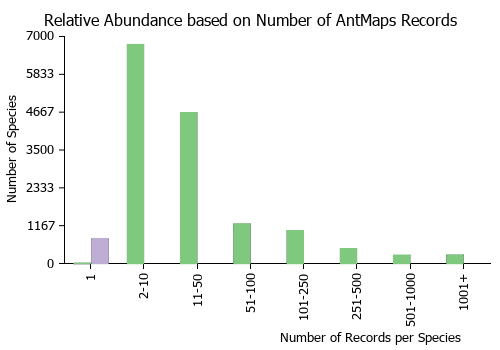Formica yoshiokae
| Formica yoshiokae | |
|---|---|

| |
| Scientific classification | |
| Kingdom: | Animalia |
| Phylum: | Arthropoda |
| Class: | Insecta |
| Order: | Hymenoptera |
| Family: | Formicidae |
| Subfamily: | Formicinae |
| Tribe: | Formicini |
| Genus: | Formica |
| Species: | F. yoshiokae |
| Binomial name | |
| Formica yoshiokae Wheeler, W.M., 1933 | |
Identification
This ant may have to be regarded as a subspecies of Formica picea. It differs, however, from the typical form, the subspecies orientalis and its five varieties in details of coloration and sculpture and from most of them in the shape of the epinotum and petiole. (Wheeler 1933)
Distribution
Distribution based on Regional Taxon Lists
Palaearctic Region: Japan (type locality).
Distribution based on AntMaps
Distribution based on AntWeb specimens
Check data from AntWeb
Countries Occupied
| Number of countries occupied by this species based on AntWiki Regional Taxon Lists. In general, fewer countries occupied indicates a narrower range, while more countries indicates a more widespread species. |

|
Estimated Abundance
| Relative abundance based on number of AntMaps records per species (this species within the purple bar). Fewer records (to the left) indicates a less abundant/encountered species while more records (to the right) indicates more abundant/encountered species. |

|
Biology
Castes
Images from AntWeb
          
| |
| Worker. Specimen code antweb1008426. Photographer Roland Schultz, uploaded by California Academy of Sciences. | Owned by MCZ, Cambridge, MA, USA. |
   
| |
| Worker. Specimen code antweb1008427. Photographer Roland Schultz, uploaded by California Academy of Sciences. | Owned by MCZ, Cambridge, MA, USA. |
   
| |
| Worker. Specimen code antweb1008428. Photographer Roland Schultz, uploaded by California Academy of Sciences. | Owned by MCZ, Cambridge, MA, USA. |
Nomenclature
The following information is derived from Barry Bolton's Online Catalogue of the Ants of the World.
- yoshiokae. Formica yoshiokae Wheeler, W.M. 1933c: 66 (w.) JAPAN.
Unless otherwise noted the text for the remainder of this section is reported from the publication that includes the original description.
Description
Worker
Length 4-6 mm.
Closely related to Formica picea. Jet black; palpi, mandibles, antennre, tarsi and articulations of legs deep piceous brown. Surface of the body, and especially of the gaster, even smoother and more shining than in picea; mandibles subopaque, densely and rather coarsely punctate-striate; clypeus and cheeks with very sparse, elongate, piligerous punctures. Head broader than in picea, epinotum of the same shape, in profile with straight and nearly horizontal base, forming a distinct obtuse angle with the declivity, which is straight, sloping and of the same length. Petiole with the superior border more compressed, more acute and distinctly notched in the middle. Hairs white, rather short, very sparse on the upper surface of the head and thorax and on the petiolar border; more numerous on the gaster, absent on the legs, which have only the usual row of bristles on the flexor surface of the tibiae. Pubescence pale, distinct, but short and very dilute on the head, denser on the mesosterna and legs, lacking on the gaster.
Type Material
Described from ten specimens taken by Mr. H. Yoshioka at an altitude of 1400 meters on Mt. Okagi, near Kiryu, Japan, July 26, 1932.
References
- Wheeler, W. M. 1933c. New ants from China and Japan. Psyche (Camb.) 40: 65-67 (page 66, worker described)

